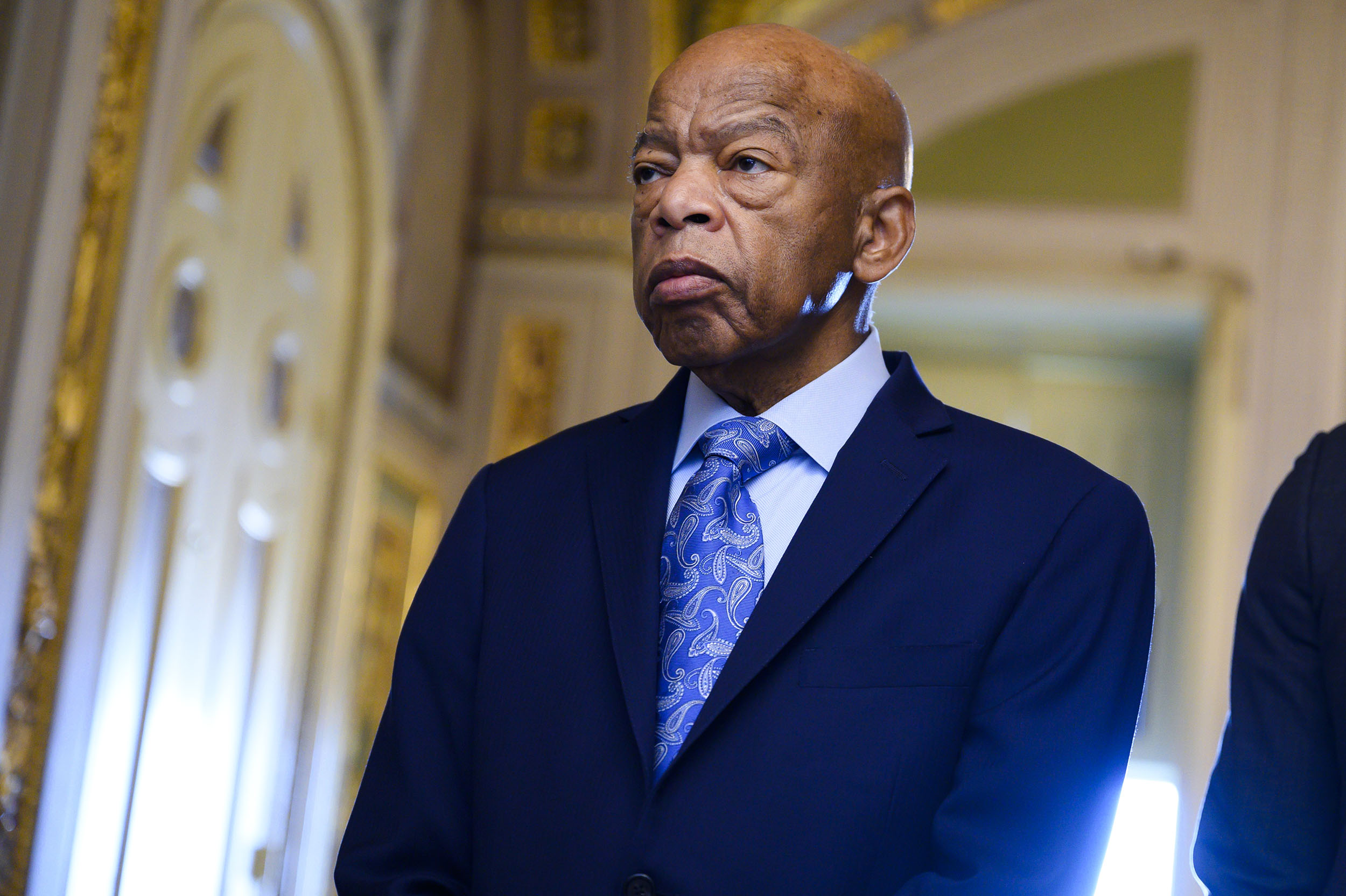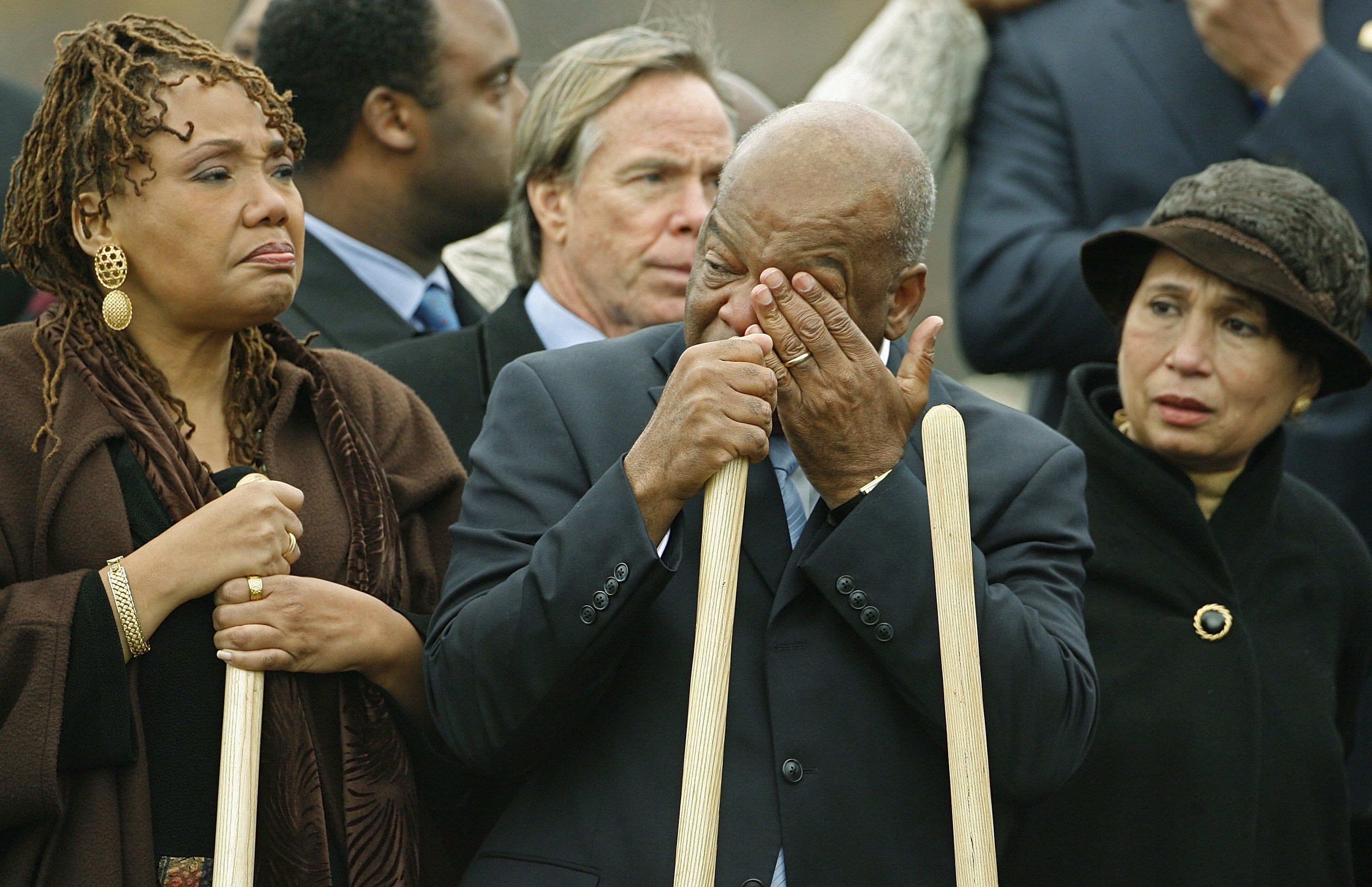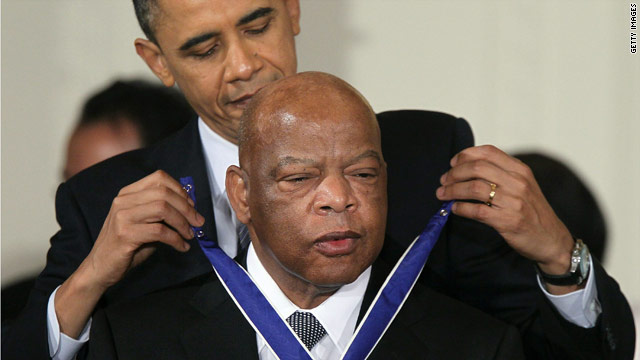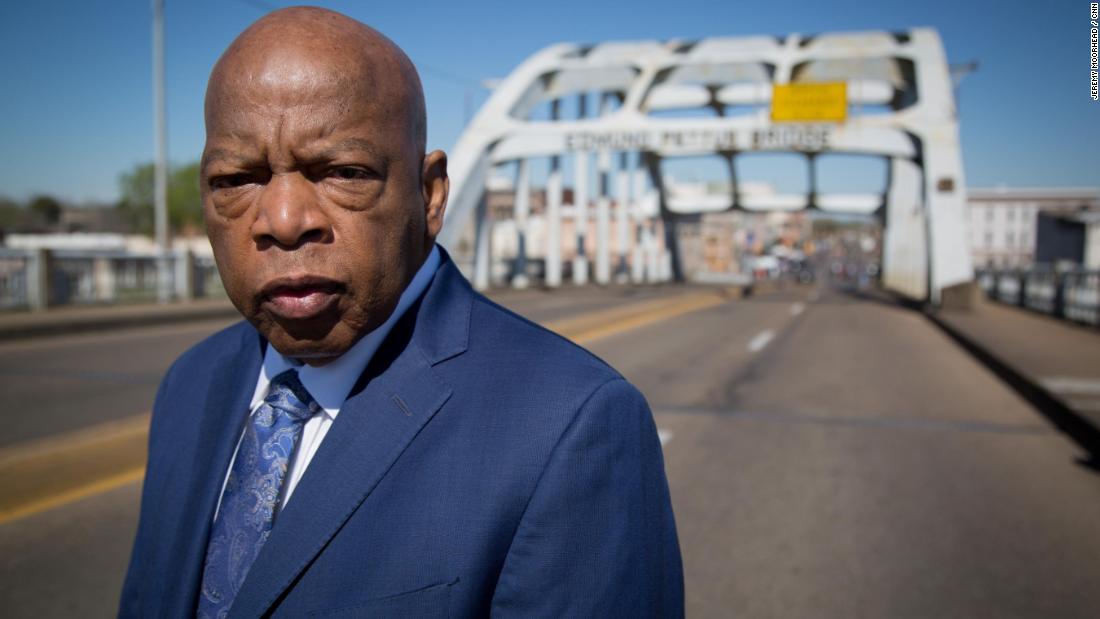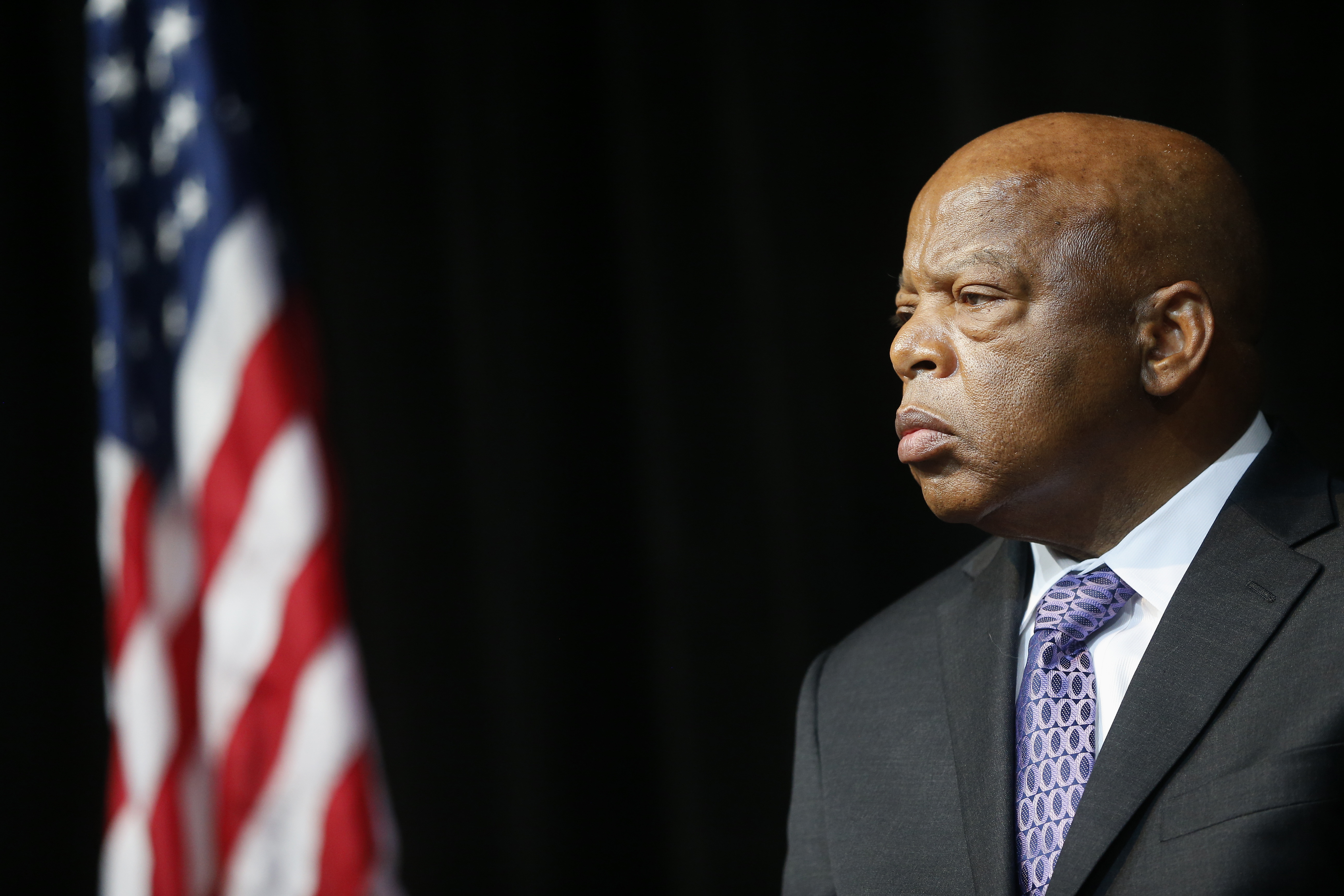
Here's a look at the life of US Rep. John Lewis (D-Ga.), a civil rights leader.
Personal
Birth date: February 21, 1940
Birth place: Troy, Alabama
Birth name: John Robert Lewis
Father: Eddie Lewis, sharecropper
Mother: Willie Mae (Carter) Lewis
Marriage: Lillian Miles Lewis (December 21, 1968-December 31, 2012, her death)
Children: John Miles
Education: American Baptist Theological Seminary, B.A., 1961; Fisk University, B.A., 1967
Religion: Baptist
Others
Lewis' skull was fractured in 1965 during an attempted voting rights march from Selma, Alabama, to Montgomery, Alabama.
By his own count, Lewis was arrested more than 40 times during his days of civil rights activis.
Timeline
1959-1960: Organizes student sit-in demonstrations in the Nashville area.
May 1961: Volunteers as a Freedom Rider, challenging bus and rail segregation laws.
1963-1966: Chairman of the Student Nonviolent Coordinating Committee.
August 28, 1963: Keynote speaker at the March on Washington.
March 7, 1965: Helps organize a voting rights march from Selma to Montgomery and is among 600 demonstrators attacked by police. This day becomes known as Bloody Sunday.
March 21-25, 1965: Joins over 3,000 demonstrators marching from Selma to Montgomery, this time under the protection of federal troops. The size of the group reaches 25,000 by the time they reach Montgomery.
1966: Co-founds the Southern Coordinating Committee to End the War in Vietnam.
1966-1967: Associate director of the Field Foundation.
1967-1970: Community organization director for the Southern Regional Council.
1970-1977: Director of the Voter Education Project.
1977-1980: Associate director of ACTION, a federal volunteer agency. Appointed by President Jimmy Carter.
1982-1986: Atlanta city council member.
1987-2020: Serves in the US House of Representatives for Georgia's 5th District.
1988: Lewis' memoir, "Walking with the Wind: A Memoir of the Movement," is published.
March 7, 2004: The John R. Lewis Monument is unveiled in Selma, Alabama, at the foot of the Edmund Pettus Bridge to commemorate the events of Bloody Sunday.
April 27, 2009: Arrested outside the Embassy of Sudan, where he is protesting the obstruction of aid to refugees in Darfur.
February 15, 2011: President Barack Obama awards Lewis the Presidential Medal of Freedom.
August 2013: Top Shelf Productions publishes "March: Book One." The graphic novel is the first of a planned trilogy, written by Lewis and Andrew Aydin, and illustrated by Nate Powell.
January 2015: Top Shelf Productions publishes "March: Book Two."
June 22, 2016: Lewis leads a sit-in on the House floor to protest inaction on gun control and try to push a vote preventing people on the terrorist watch list from buying guns. The demonstration draws 170 lawmakers. After about 25 hours, Democrats decide to end the sit-in, but vow to continue when Congress returns for their next session.
August 2016: Top Shelf Productions publishes "March: Book Three."
January 13, 2017: In an interview with NBC News, Lewis says he does not view President-elect Donald Trump as a legitimate president due to evidence of Russian meddling during the run-up to the election. He says he will not attend the inauguration -- the second time he's boycotted an inauguration in protest. In 2001, he declined to attend the inauguration of George W. Bush, who won a close election after the Supreme Court halted a recount in Florida. Bush won the Electoral College even though Vice President Al Gore topped him in the popular vote.
January 14, 2017: Trump criticizes Lewis in a threaded tweet, "Congressman John Lewis should spend more time on fixing and helping his district, which is in horrible shape and falling apart (not to mention crime infested) rather than falsely complaining about the election results. All talk, talk, talk - no action or results. Sad!" Lewis responds with a statement encouraging donors to pledge money to the Democratic National Committee, adding: "Today, Donald Trump attacked me on Twitter. He said that I'm 'all talk' and 'no action.' I've been beaten bloody, tear-gassed, fighting for what's right for America. I've marched at Selma with Dr. King. Sometimes that's what it takes to move our country in the right direction."
July 28, 2018: Becomes ill while on a flight to Atlanta. Spends one night in hospital for undisclosed reasons and is released the next day with a "clean bill of health," according to his spokeswoman.
December 29, 2019: In a statement, Lewis announces he has stage 4 pancreatic cancer.



